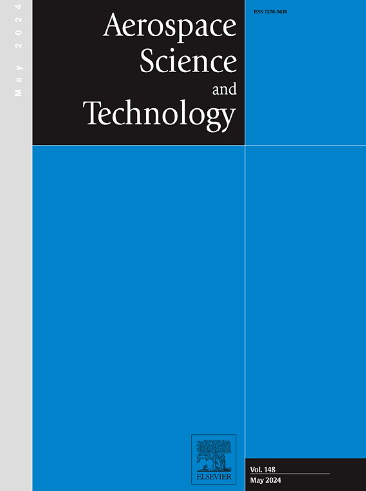模糊环境下估算工程结构失效可信度的高效模糊模拟
IF 5
1区 工程技术
Q1 ENGINEERING, AEROSPACE
引用次数: 0
摘要
在模糊环境下,高效、准确地求解结构系统的失效可信度在工程领域发挥着重要作用。更精确的失效可信度有助于评估系统的安全程度,进而减少安全事故的发生。目前,扩展模糊一阶二瞬法(EFFOSM)在某些场合能有效地分析失效可信度。然而,当涉及复杂的性能函数和模糊输入时,EFFOSM 的准确性会大大降低,其效率也有待提高。为克服上述不足,本文提出了两种新型模糊仿真算法,即均匀离散化算法(UDA)和分段仿真算法(BSA)。对于涉及经常遇到的连续和严格单调性能函数的规则 LR 模糊区间输入的系统,这两种算法能以更高的效率和精度估计故障可信度。随后,借助 EFFOSM 中的线性化和正则化程序,UDA 和 BSA 的应用扩展到不规则 LR 模糊区间的非单调性能函数。为了评估和验证所提出的两种算法的性能,我们通过一些数值示例和实际问题将它们与 EFFOSM 进行了比较。结果表明,所提出的两种算法在精度和效率方面均优于 EFFOSM,而且在估计涉及规则 LR 模糊区间输入的严格单调性能函数的故障可信度方面具有更广泛的应用范围。同时,在运行时间较短方面,BSA 略优于 UDA。本文章由计算机程序翻译,如有差异,请以英文原文为准。
Efficient fuzzy simulations for estimating the failure credibility of engineering structures under fuzzy environment
Efficiently and accurately solving the failure credibility of a structural system plays a significant role in the engineering field under fuzzy environment. A more precise failure credibility can help assess the safety degree of the system, and then reduce the occurrence of security accidents. At present, the extended fuzzy first-order and second-moment method (EFFOSM) is effective to analyze failure credibility for some occasions. However, when it comes to complicated performance functions and fuzzy inputs, the accuracy of EFFOSM is greatly reduced and its efficiency also needs to be improved. To overcome the above shortcomings, this paper proposes two types of novel fuzzy simulation algorithms, namely uniform discretization algorithm (UDA) and bisection simulation algorithm (BSA). For the system involving frequently-encountered continuous and strictly monotone performance functions of regular LR fuzzy interval inputs, these two algorithms are designed to estimate failure credibility with higher efficiency and accuracy. Subsequently, with the aid of the linearization and regularization procedures in EFFOSM, the application of UDA and BSA is extended to non-monotone performance functions of irregular LR fuzzy intervals. To evaluate and verify the performance of the proposed two algorithms, their comparisons with EFFOSM are conducted through some numerical examples and practical problems. The results show that the proposed two algorithms outperform EFFOSM in terms of accuracy and efficiency, and also have wider application range for estimating the failure credibility of strictly monotone performance functions involving regular LR fuzzy interval inputs. Meanwhile, BSA is slightly better than UDA for the less runtime.
求助全文
通过发布文献求助,成功后即可免费获取论文全文。
去求助
来源期刊

Aerospace Science and Technology
工程技术-工程:宇航
CiteScore
10.30
自引率
28.60%
发文量
654
审稿时长
54 days
期刊介绍:
Aerospace Science and Technology publishes articles of outstanding scientific quality. Each article is reviewed by two referees. The journal welcomes papers from a wide range of countries. This journal publishes original papers, review articles and short communications related to all fields of aerospace research, fundamental and applied, potential applications of which are clearly related to:
• The design and the manufacture of aircraft, helicopters, missiles, launchers and satellites
• The control of their environment
• The study of various systems they are involved in, as supports or as targets.
Authors are invited to submit papers on new advances in the following topics to aerospace applications:
• Fluid dynamics
• Energetics and propulsion
• Materials and structures
• Flight mechanics
• Navigation, guidance and control
• Acoustics
• Optics
• Electromagnetism and radar
• Signal and image processing
• Information processing
• Data fusion
• Decision aid
• Human behaviour
• Robotics and intelligent systems
• Complex system engineering.
Etc.
 求助内容:
求助内容: 应助结果提醒方式:
应助结果提醒方式:


